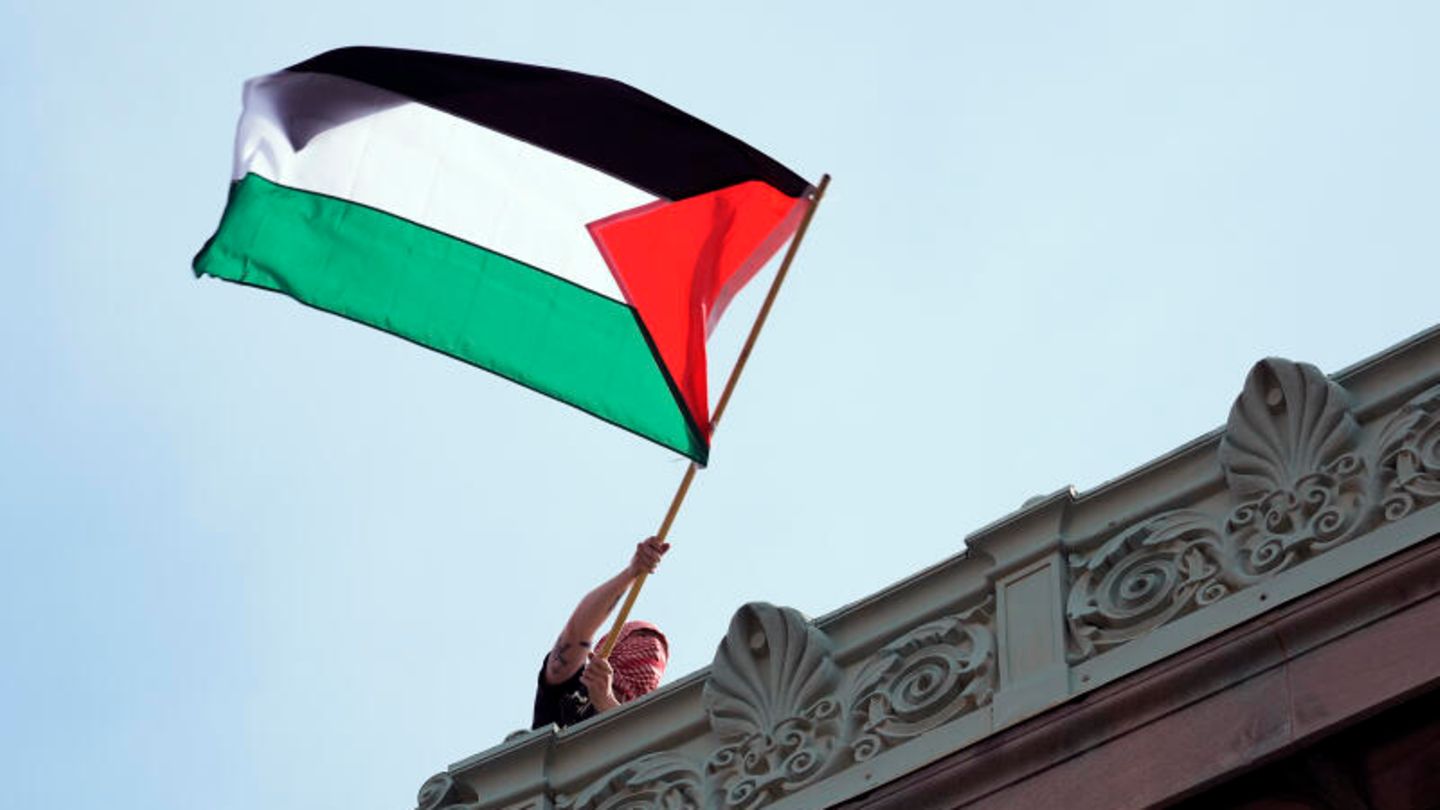Some see a legitimate right to the existence of Palestine, others see a reward for terrorism. Norway, Spain and Ireland are now among the majority of UN members who officially recognize Palestine as a state. But the decisive factor is (still) who is not included.
Since midnight, Palestine has officially been a state – at least in Norway. In view of the deadlock in the Middle East, the Scandinavians say they want to keep the chance of a two-state solution alive with this controversial step. Spain and Ireland followed suit. It is a matter of not giving up hope, explained Ireland’s Prime Minister Simon Harris to the British news agency PA: “You cannot have a two-state solution if you do not recognise the existence of both states.”
Israel reacted with disbelief to the plan, summoned the ambassadors of the three countries to the Foreign Ministry and announced diplomatic consequences.
Is Palestine a state, an autonomous region or simply a part of Israel? That depends on who you ask. One thing is certain: the three Europeans are not the first to drive Israel crazy on this issue.
More than 140 UN members already recognize Palestine as a state
In 1988, the Palestinians declared themselves independent and declared the entire area occupied by Israel to be national territory – with East Jerusalem as the capital. Many influential nations agreed to this in the same year, including China, India, Russia, Turkey – and the GDR. Since then, more and more supporters have joined, such as Brazil in 2010 and Thailand in 2012.
In September 2015, the Palestinian flag flew for the first time at the United Nations in New York. Years earlier, the General Assembly had voted overwhelmingly to grant the country the status of a “non-member state with observer status.” Years earlier, the General Assembly had voted overwhelmingly to grant the country the status of a “non-member state with observer status.” In 2015, the International Criminal Court in The Hague, the Netherlands, accepted Palestine as a member.
Today, around three quarters of all United Nations members recognize Palestine as an independent state. Including Norway, Spain and Ireland, this would make 146 out of 193 – including almost the entire Muslim world.
Western leading powers remain skeptical
What is crucial, however, is who continues to refuse to give their consent. In addition to Israel’s protecting power, the USA, these include Canada, Australia, Japan, South Korea and almost all of the leading European powers, including Great Britain, Italy, France and Germany. The USA continues to support a two-state solution, but refuses to unilaterally recognise Palestine.
The last time a European country recognized Palestine was a good ten years ago – at that time Sweden joined the almost exclusively Eastern European supporters. Israel’s then Foreign Minister Avigdor Lieberman then declared that “relations in the Middle East are much more complex than the self-assembled furniture from Ikea.”
Sources: “”; ; ; with DPA
Source: Stern
I have been working in the news industry for over 6 years, first as a reporter and now as an editor. I have covered politics extensively, and my work has appeared in major newspapers and online news outlets around the world. In addition to my writing, I also contribute regularly to 24 Hours World.




